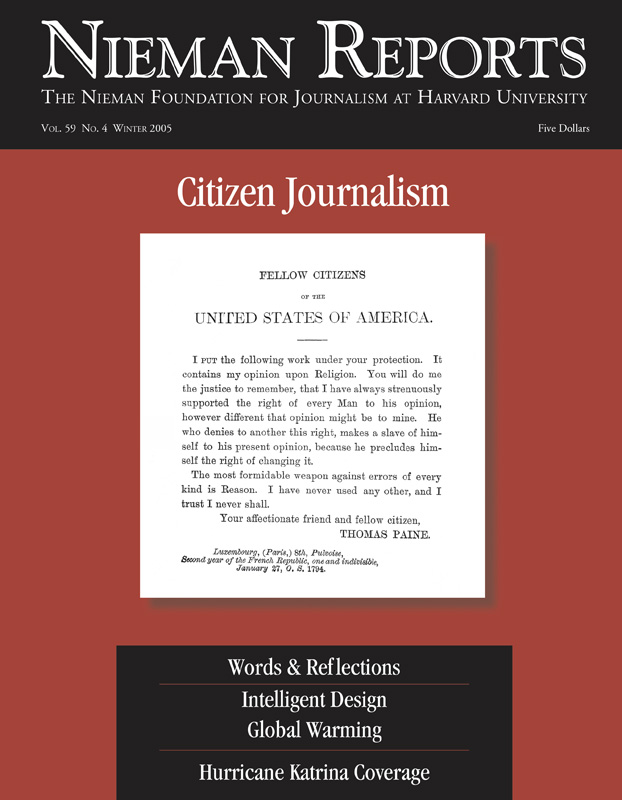ISSUE
Winter 2005

Citizen Journalism
With the arrival of the Internet, the ability of nonjournalists to “publish” their words and link them with those of other like-minded scribes has altered forever the balance of power between those who control the means to publish and those who have something they believe is important to say. This shift from journalists as gatekeepers to citizens as reporters has profound implications for news organizations that “might have completely underestimated the influence of this new medium.”